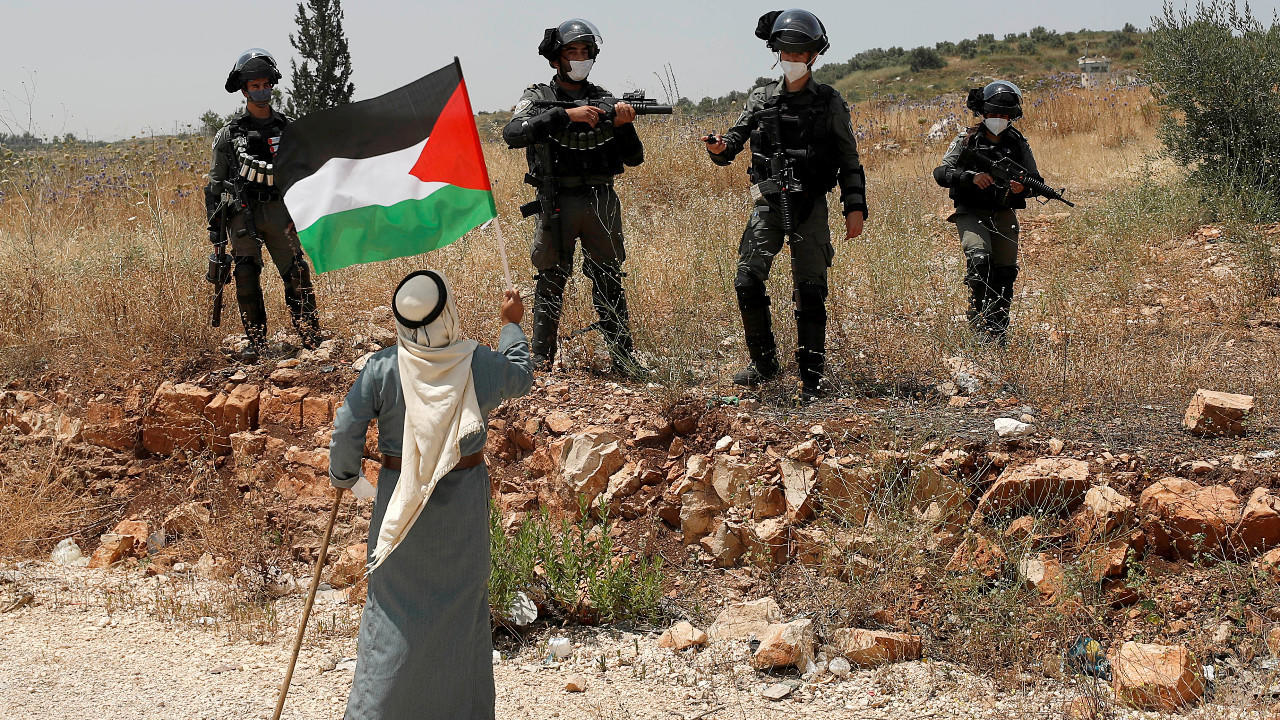Iran anxious as popular movements threaten its influence in Iraq and Lebanon

Issued on: Modified:
As protests have flared in Iraq and Lebanon amid widespread discontent with the political class in both countries, Iran has showed signs of anxiety about the popular movements, which threaten to weaken its influence abroad.
Advertising
Read more
Lebanese President Michael Aoun called on Thursday for the abolition of the countrys confessionalist political system – an arrangement in which government posts are allocated by religion, thus ensuring that many of Irans Shia allies are placed in positions of power.
The same day, Aouns Iraqi counterpart Barham Saleh also attempted to mollify a popular movement, promising demonstrators early elections, while protests continued to rock Baghdad. Significantly, videos have been circulating of protesters hitting their shoes against a poster of Irans Supreme Leader Ayatollah Khamenei and the head of the Iranian Revolutionary Guards elite Quds force, the (in)famous Qassim Soleimani, in what appears to be Baghdads Tahrir Square.
Aouns and Salehs conciliatory gestures came after Khamenei took a very different stance towards the Lebanese and Iraqi popular movements. “I recommend those who care in #Iraq and #Lebanon remedy the insecurity and turmoil created in their countries by the U.S., the Zionist regime, some western countries, and the money of some reactionary countries,” he wrote on Twitter on Wednesday.
“Given its important political role in Iraq and Lebanon, its inevitable that Iran is worried; Tehran needs to maintain its power in these two countries after investing a great deal to give itself influence,” an Iran expert told FRANCE 24 under the condition of anonymity. “Invoking the predictable conspiracy theory of Zionist interference to try and discredit these protest movements shows a certain weakness” on Irans part, the anonymous analyst continued.
Hezbollah comes under fire in Lebanon
In Lebanon, the wave of protest spread to Shia strongholds in the south of the country, which are dominated by Hezbollah, the political and military group sponsored by Iran and hitherto considered untouchable. Lebanese protesters have been frequently chanting “all means all, suggesting that no part of the countrys political class, including Hezbollah, is beyond reproach.
In an unprecedented move, protesters vandalised the constituency offices of several Shia MPs, including that of Mohammad Raad, leader of the Hezbollah parliamentary bloc. Supporters of the Iranian-backed armed group have retaliated with attacks on protesters – a sign of Hezbollahs nervousness.
Hezbollah is not just a Lebanese political party with weapons; it has a bigger arsenal than the countrys military. Analysts say that its the countrys real decision-maker, and very much under Irans thumb. “There are two Lebanese states: the one thats presented to the world for show; and that of Hezbollah – an Iranian colony, which structures political life and controls the borders,” said Antoine Basbous, director of the Observatoire des Pays Arabes in Paris.
For his part, Hezbollahs leader Hassan Nasrallah has made similar remarks to those of Khamenei, suggesting last week that the protests were funded by foreign governments. However, this may have backfired for Nasrallah, as online activists responded to his comments by sharing a 2016 video in which he said that Iran pays for his organisations “budget” and “wages”.
Nasrallah proffered more emollient words on Friday. "A new government must be formed as soon as possible … and the new government must listen to the demands of the people who took to the streets," he said in a televised address.
Get out, Iran! Free Baghdad!
Iran has enjoyRead More – Source




